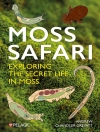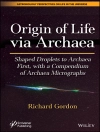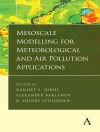This book gives a comprehensive overview on the various aspects of Trichoderma, a filamentous fungus ubiquitously present in soil. Topics addressed are the biology, diversity, taxonomy, ecology, biotechnology and cultivation of Trichoderma, to just name a few. Basic as well as applied aspects are covered and a special focus is given on use of Trichoderma in agriculture and beyond. Trichoderma species are widely distributed throughout the world in soil, rotting plant material, and wood. Although they are often considered as a contaminants, Trichoderma species are also known for their ability to act as biocontrol agents against various plant pathogens and plant diseases, and also as biostimulants promoting plant growth.
The contents of this book will be of particular interest to, agricultural scientists, biotechnologists, plant pathologists, mycologists, and microbiologists, students, extension workers, policy makers and other stakeholders.
Содержание
Advances in Systematics, Taxonomy and Conservation of Trichoderma species.- Biodiversity of Trichoderma species in different agro-ecological habitats.- Beneficial Effects of Trichoderma on Plant–Pathogen Interactions: Understanding Mechanisms Underlying Genes.- Trichoderma – Boon for Agriculture.- Mass Multiplication of Trichoderma in Bioreactors.- Trichoderma species: A blessing for crop production.- Trichoderma: An effective and potential biocontrol agent for sustainable management of pulses pests and pathogens.- Management of Diseases of Medicinal and Aromatic Plants Using Trichoderma spp..- Trichoderma — A Globally Dominant Commercial Bio-fungicide.- Modulation of Microbiome Through Seed Bio-priming.- Opportunistic Avirulent Plant Symbionts Trichoderma: Exploring its Potential Against Soilborne Phytopathogens Biotechnological Application of Trichoderma: A Powerful Fungal Isolate with Diverse Potentials for the Attainment of Food Safety, Management of Pest and Diseases, Healthy Planet, and Sustainable Agriculture.- Trichoderma as Biostimulant: Factors Responsible for Plant Growth Promotion.- Trichoderma Proteome: Multifunctional Role in Plant Defense.- Strategies of Biotechnological Innovations using Trichoderma.- Trichoderma spp.: Expanding Potential Beyond Agriculture.
Об авторе
Professor C. Manoharachary has served Osmania University for 45 long years in different capacities including as Dean. He has also served as Vice-Chancellor of Oriental University, Indore. He has supervised 50 students for Ph.D., published >640 research papers , written and edited 30 books. His contributions to fungal taxonomy is globally acclaimed. Prof Manoharachary has discovered 20 new fungal genera and 82 new fungal species. He has immensely contributed for the advancement of teaching and research in Mycology and Plant Pathology besides establishing excellent infrastructure at Osmania University, Hyderabad, India. He is recipient of Five National Awards including Dr. E. K. Janaki Ammal National Award by the Ministry of Environment and UGC J.C. Bose Award. Further, received five awards from state government including best teacher award and outstanding scientist award. He has been honored with six lifetime achievement awards, served as President of several Indian academies viz., Indian Phytopathological Society, Indian Botanical Society, Mycological Society of India , Indian Science Congress Association-Botany section. Served as chairman/expert member of UGC, DST, DBT, MOENF, ICAR, CSIR and others. He did his postdoctoral work in UK, USA, and Germany. Chary is a fellow of National Academy of Sciences, India, Fellow of National Academy of Agricultural Sciences and Several other academic societies.
Prof. Harikesh Bahadur Singh, Director, Somvanshi Research Foundation, Lucknow and Former Professor & Head, Department of Mycology & Plant Pathology, Banaras Hindu University, India has contributed significantly in developing formulations of biocontrol agents for management of soilborne plant pathogens. The formulations have increased the yield of several crops and also controlled most of the soil borne diseases. The products developed are useful as plant growth enhancer and biofungicides for seed, soil and foliar applications and improve the soil health, crop productivity and quality. The technology has been transferred to various industries for commercial production of biopesticides. Prof Singh has received several national awards viz., CSIR Technology Prize 1999, BRSI Industrial Medal Award 2007, CSIR Award for Science & Technology Innovations for Rural Development in 2011, Prof. P. Maheshwari Medel 2011, Mundkur Memorial Award 2015, M.S. Swaminathan Award 2016, C.N.R. Rao Award 2017. During this journey Dr. Singh has obtained 20 US patents, 4 PCT and filed 7 Indian Patents. Prof. Singh published 290 research papers, 42 review articles, 87 book chapters, 20 edited books from CABI, Springer, Elsevier ; 4 authored books, guided 23 Ph.D. students, 6 PDFs, 2 DST Women scientist.
Prof. Dr. Ajit Varma: Professor Varma has completed his Ph D at the age of 25 years from Allahabad University and Former Professor, School of Life Sciences, Jawaharlal Nehru University, India. Presently, he is the Distinguished Scientist & Professor of Eminence of Amity Institute of Microbial Technology; Group Dy. Vice Chancellor, Ritnand Balved Education Foundation, and Vice Chairman, Amity Science, Technology & Innovation Foundation Amity University Uttar Pradesh, India. He has published more than 314 papers in reputed journals and has been serving as an editor in Chief of Soil Biology Series, Springer Verlag Germany. Dr Varma is the Fellow of Alexander-von-Humboldt Society, Germany, elected Fellow of National Academy Agricultural Sciences and Fellow of Microbiology Society of India.












